15 best gratitude apps for positive thinking in 2023
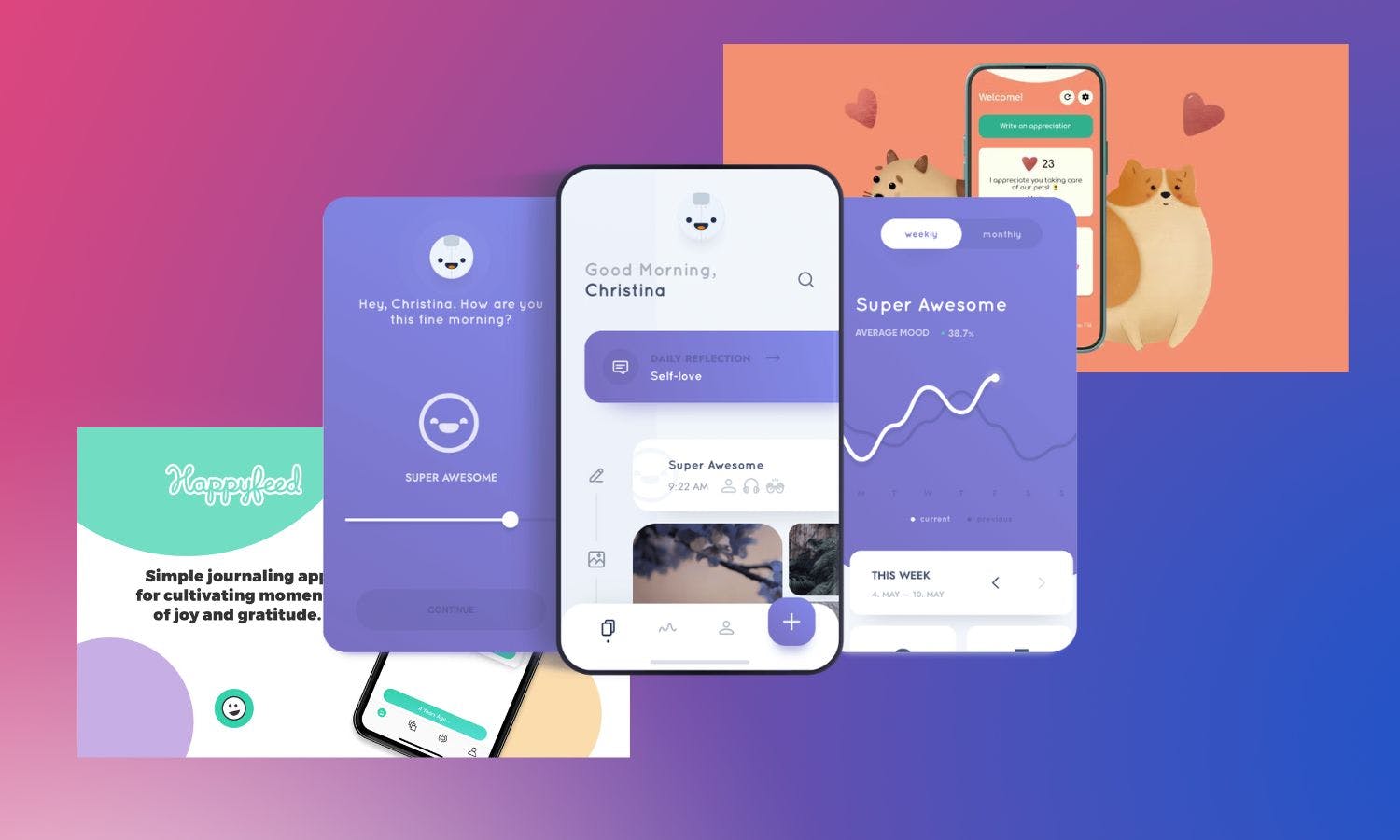
Share On
We all need time out to focus on our wellbeing. Gratitude apps are designed to help users focus on their mental health, offering a wealth of features that can help track our thoughts and feelings.
While many of these act like self-care apps in that they offer a private space in which to reflect through journaling or mood check-in features, they can also act like a photobook of memories allowing media to be uploaded or even shared to our nearest and dearest.
Not to mention, some utilize community features so you can access global support, or even just talk to a mental health professional. I tested 11 gratitude apps that focus on all these areas to discover the very best.
For more health inspiration, take a look at the best health and fitness apps or check out this guide to AI mental health apps to see how the latest tech is making mental health care more accessible.
Best gratitude apps for 2023
1. Gratitude
Best overall gratitude app
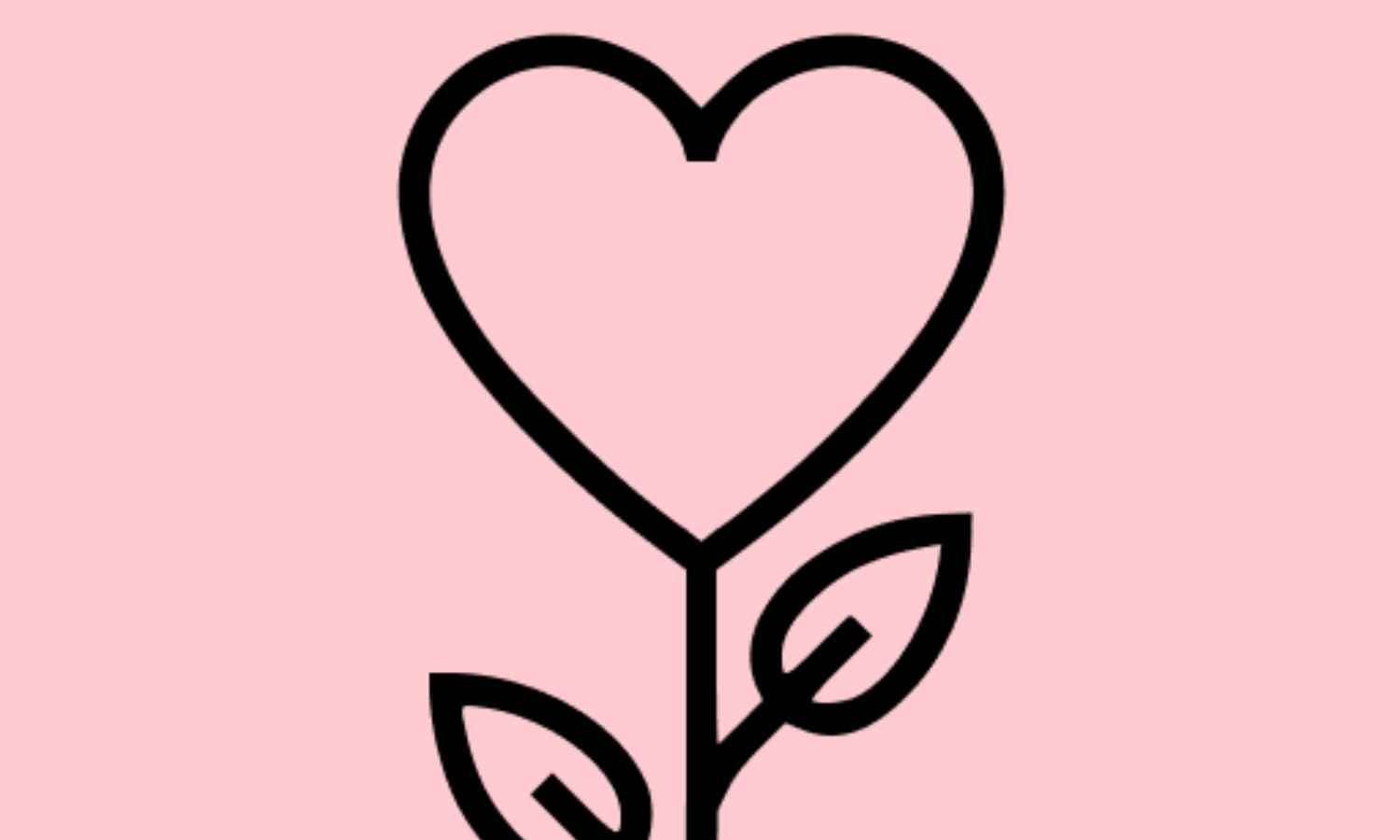
Gratitude
Pros: Great for beginners, Easy to use and colorful interface, No login required, Ad-free, Data privacy
Cons: Can only upload 10 photos at a time to the Vision Board feature
Platforms: iOS and Android
Features: Daily affirmations, Motivational quotes, Vision board, Reminders
Cost: 7-day free trial, $4.83 approx/ month, $2.44 approx/month billed yearly at $29.26
Gratitude is a mindfulness and self-care tool that features a gentle, colorful interface. The app guides you through the entire process of gratitude journaling so it’s ideal for beginners who are just getting started, as well as those who are more accustomed to the process.
You set your goals from the outset and the app helps you aim for greater happiness and better sleep, using just 5 minutes of your time daily. The interface lets you set up reminders to help you become consistent at feeling grateful and you can customize them simply by tapping on the time options.
The journal prompts were useful for starting to set up positive thoughts, while both the Affirmations and Daily Zen motivational quotes features were easy to follow, even giving you the opportunity to spread gratitude using the app’s social sharing features. The Vision Board in particular makes it easy to set up future goals visually, allowing users to add their own photographs to the experience, but its restriction to 10 images at a time doesn’t feel the most ideal for snap-happy creators.
Read Gratitude reviews from our community
2. Appreciation Jar
Best gratitude app for couples
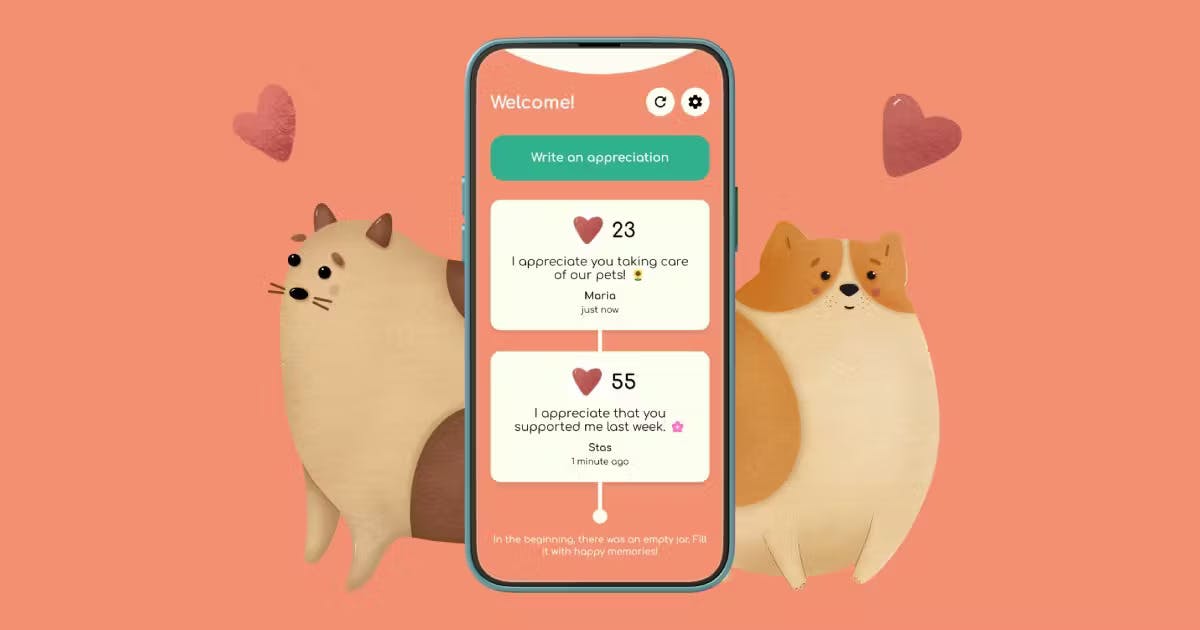
Appreciation Jar
Pros: Simple concept, Free, Fun design, Data privacy
Cons: The ability to add extra media would be nice
Platforms: Web, Android, iOS
Features: Link-sharing, Entry for appreciative notes
Cost: Free
Positive thinking isn’t always about practicing self-care, Appreciation Jar lets you send encouraging and appreciative messages to your partner or friends, letting them know you care for them. If you’re in a long distance relationship in particular, this app uses the ideal set-up, as it uses invitation links to bring your partner into the app which can easily be shared across social networks or chat applications.
From the outset, this app will put a smile on your face with its adorable cute design, colorful graphics and easy-to-use interface. The simple concept has you writing appreciative notes that you can fill with happy memories or simple thank you notes. Once your partner joins the app, they can then see these notes once they join the ‘jar.’ The app could benefit from being able to upload various forms of media to enhance these notes, but especially given it’s a free-to-use app, it’s a real delight to use.
Read Appreciation Jar reviews from our community
3. Gratitude Forest
Best gratitude app for iOS
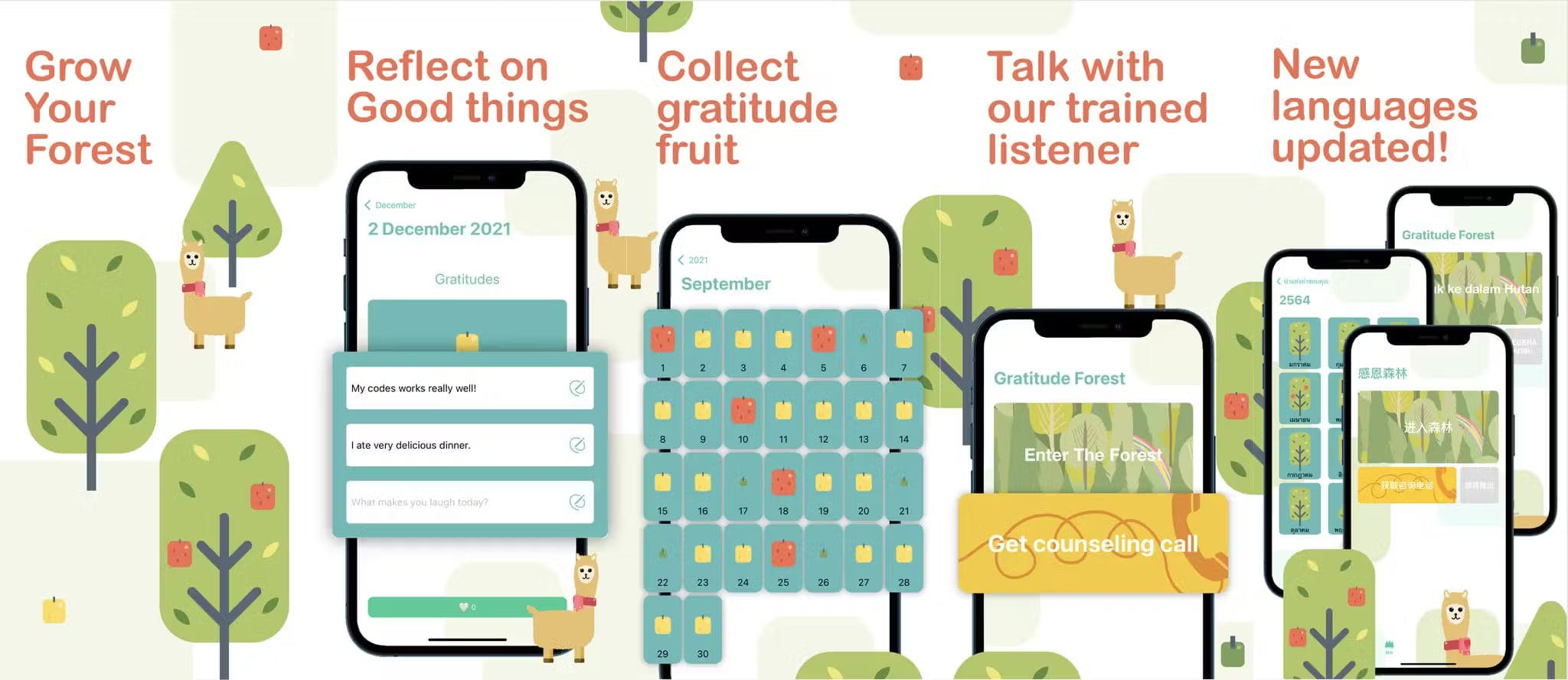
Gratitude Forest
Pros: Great concept, Fun design
Cons: Only available for iPhone and iPad
Platforms: iOS
Features: Gamification collection features, Paid counseling calls, Gratitudes
Cost: Free to use (some features are paid)
Gamification is becoming a rising trend in health apps over the last few years and Gratitude Forest utilizes the concept to great effect.
At first glance, it reminded me a lot of Forest, which is an app that lets the user focus better on their work. It has a similar themed design and features the fun concept of growing virtual trees in order to hit your goal, as well as allowing users to collect ‘gratitude fruit’ too.
Each month, you receive a seed that you can plant and it grows into a ‘gratitude tree’. Once you input anything you are thankful for, a magic fruit will appear on your tree and over time, you will amass a forest full of gratitude trees and fruits as a visual reminder of all the good things in life.
It’s an adorable approach to mental health and the app makes it easy to input gratifications and talk with a trained listener if you’re feeling low. Greater access via multiple devices would be ideal.
Read Gratitude Forest reviews from our community
4. Three Lines Gratitude Journal
Best for minimalistic journaling
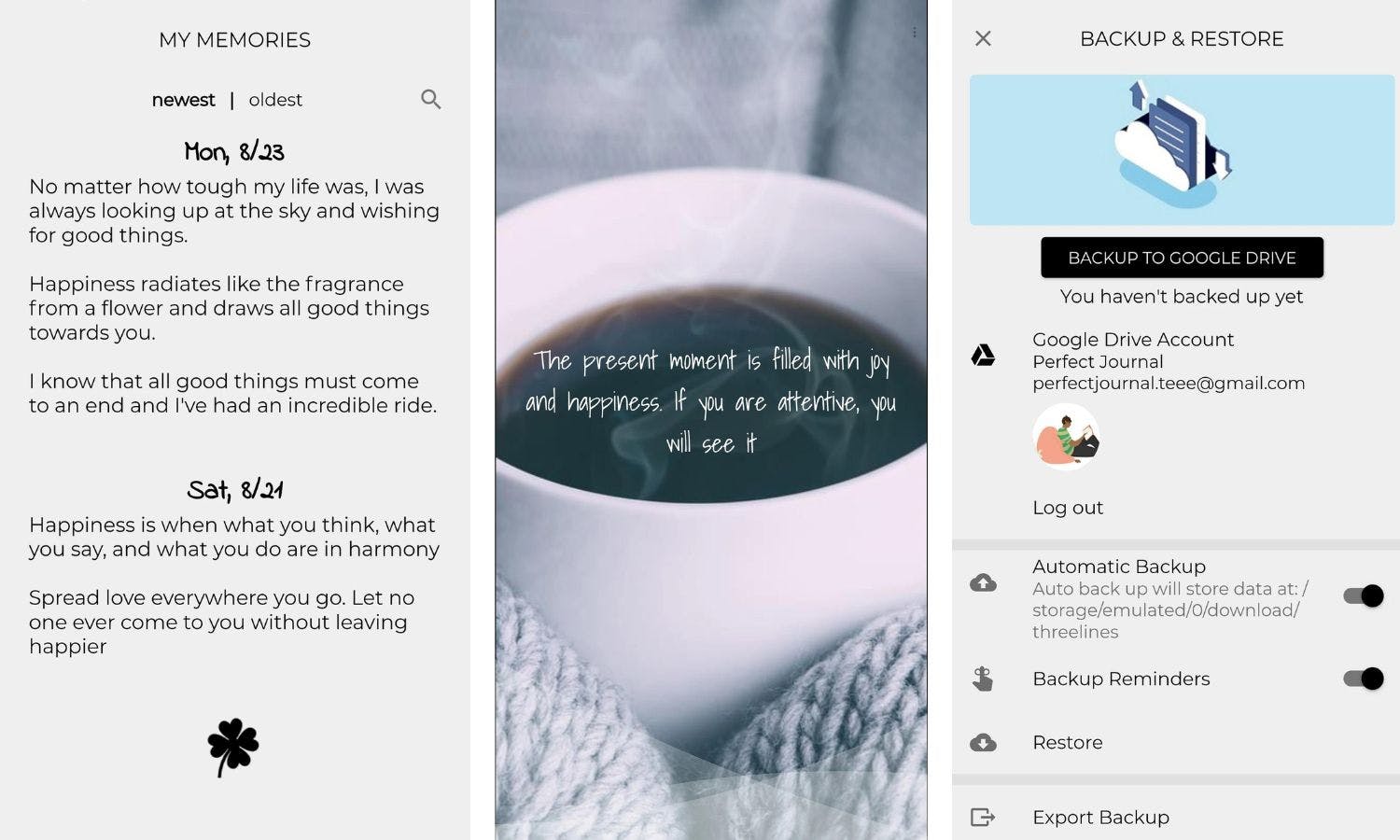
Three Lines Gratitude Journal
Pros: Non-fussy design, Great for journal lovers
Cons: Limited features, Lack of ability to customize text, Only available for Android
Platforms: Android
Features: Journaling features: Daily affirmations and space to add three good things in the day
Cost: Free
Plenty of gratitude apps focus on colorful designs but if you’re looking for something a lot simpler on the eyes, Three Lines Gratitude Journal might just be for you. It does feature some cutesy illustrations, but its interface is largely clean and simple, focusing immediately on the journaling aspect.
It’s a bit like scribbling your immediate thoughts on paper, with the ability to edit and add three good things that have happened in the day and a section to input your Daily Inspirations. It does lack features that help inspire the user, however, with most of the input driven by the user themselves but the fact it feels a lot like a written diary will appeal to journal lovers.
Read Three Lines Gratitude Journal reviews from our community
5. ThinkUp
Best for daily affirmations
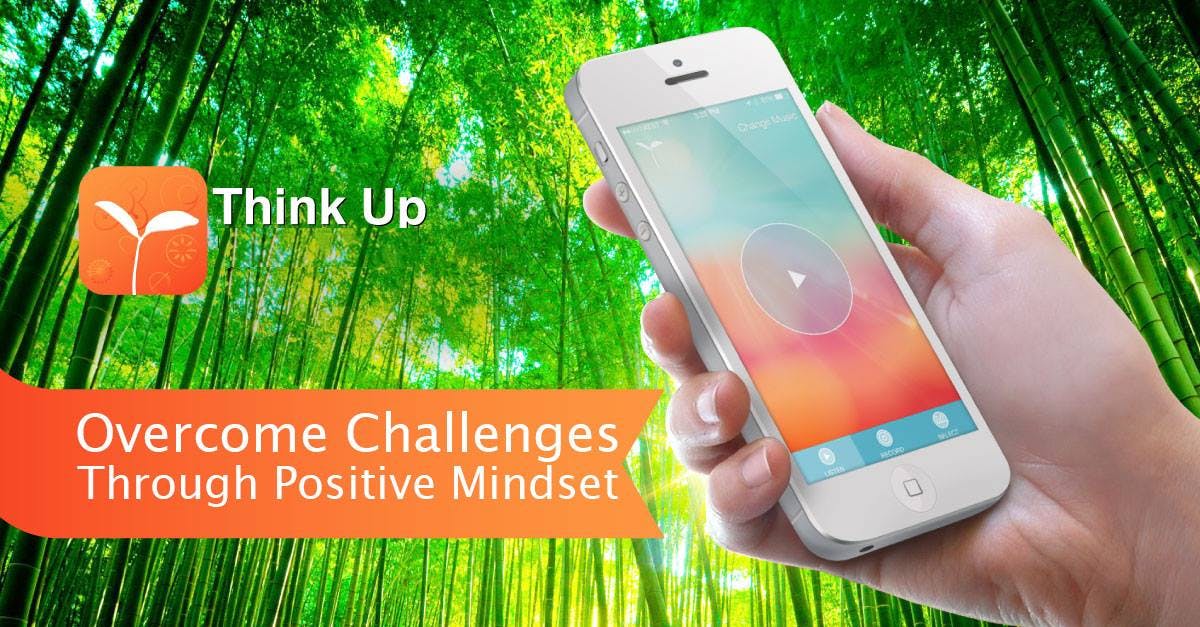
ThinkUp
Pros: Audio recording feature, Great for accessing anywhere, Calming music
Cons: Not ideal if you don’t like the sound of your own voice
Platforms: iOS and Android
Features: Expert-approved affirmations list, Audio recordings, Playlist
Cost: Free, $7.99/month, $39.99/annual/ $99.99 lifetime for Premium membership
If you’re looking for an app that’s less about journaling and more about daily pick-me-ups then take a look at ThinkUp.
The app helps you build a positive mindset through affirmations and self-talk, quite literally. One of the key features here is the ability to record audio, so when you add your own affirmation, not only can you type it in, but speak it out loud too. It’s then available on the app’s homepage playlist so you can play it back whenever you want. Alternatively, you can choose from a selection of expertly crafted ones if you’re stuck for inspiration.
If you’re more of a visual person when it comes to affirmations, you might miss having inspirational quotes presented to you in graphic-form. The audio does present an opportunity to listen anytime, anywhere, however.
Read ThinkUp reviews from our community
6. The Happiness Bar Gratitude Journal
Best integration with planning software
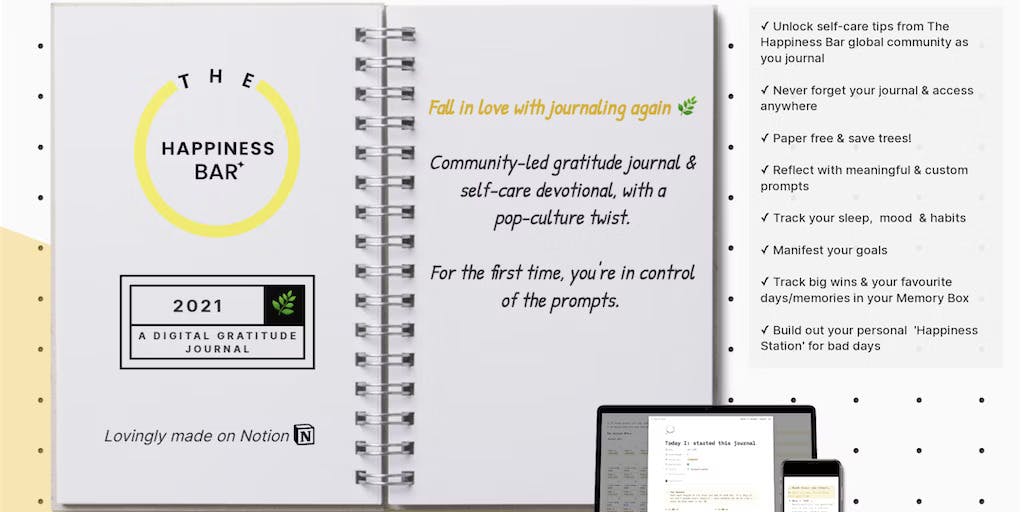
The Happiness Bar Gratitude Journal
Pros: Available across devices, Great community features, Fun factor
Cons: Only works with Notion
Platforms: Desktop, web and mobile
Features: Goal trackers, Community-submitted wellness tips, GIF stickers, Planner prompts and templates, Journal club
Cost: Free for Basic, $19.10 approx for The Daydreamer Journal, Pay what you want feature
Everyone loves Notion: it’s the ultimate way to organize your workspace or your personal life. The Happiness Bar Gratitude Journal takes that concept one step further with handy templates available to download that turns the platform into a beautiful digital gratitude journal.
Every year there’s a new release featuring user-submitted wellness tips from the community, not to mention a built-in journal club and GIF stickers that’ll take you back to the carefree days of keeping a journal as a child. You have to love that it works across multiple devices, but you can’t help but think the concept is so brilliant, you wish anyone outside of Notion too could give it a go.
Read The Happiness Bar Gratitude Journal reviews from our community
7. Day One Journal
Best for media features
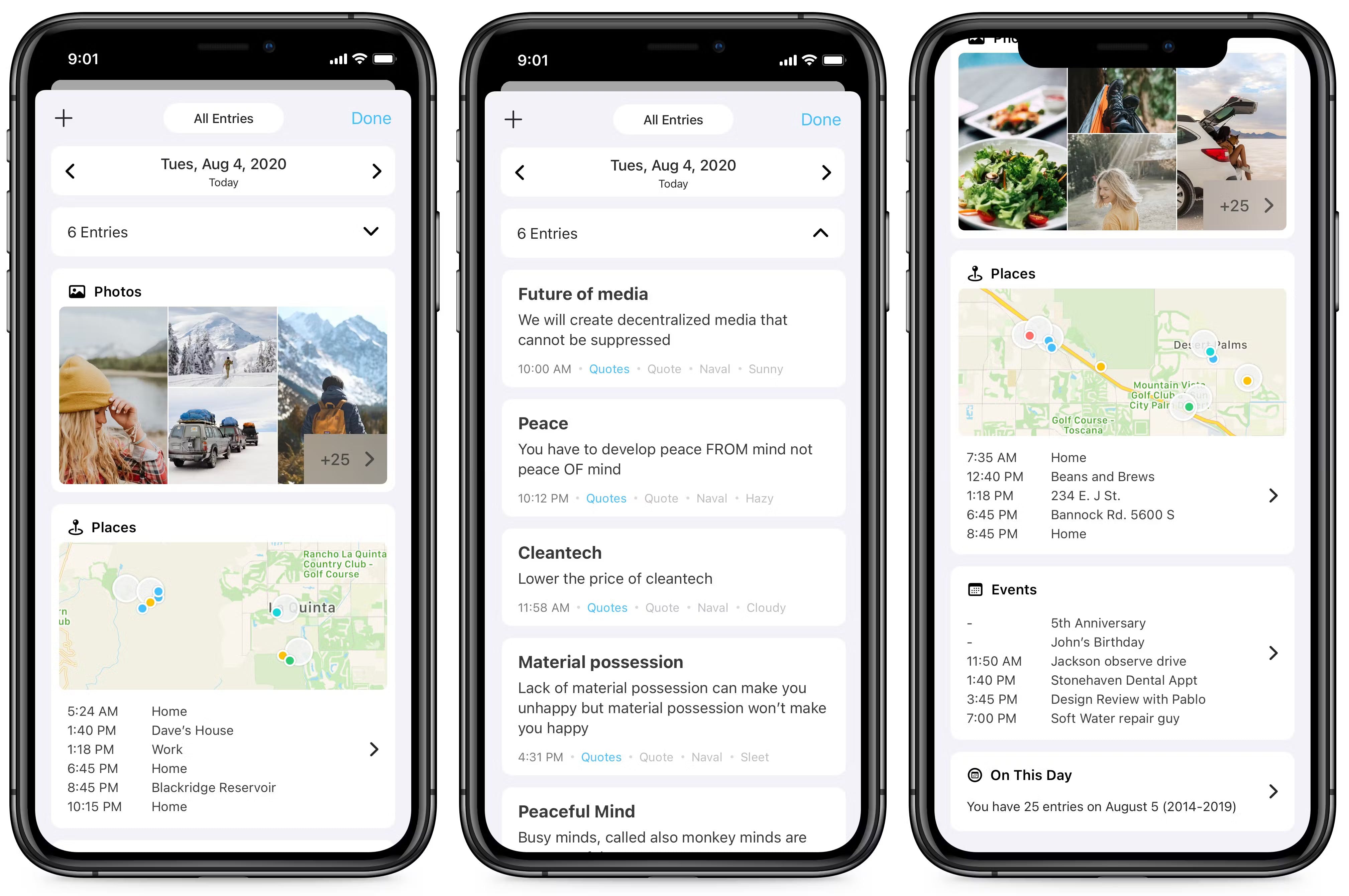
Day One Journal
Pros: Locational and media features are excellent for bringing memories to life
Cons: Interface could be a bit more exciting, Locational features can be battery draining
Platforms: Android and iOS
Features: Timeline, Media, Map, Calendar
Cost: Free, $34.99 for Premium, $5.99 for Premium (1 month)
If you’re looking to combine your journaling with some excellent media features then Day One Journal arguably does this better than Gratitude. You add photos, videos and audio files to your journal, almost creating a virtual photobook and capturing precious memories with a 360 multimedia view.
You have to particularly love the locational features here: you can add data in from a map to show exactly where you were on this day. Just keep in mind that the app may use your location even when it isn’t open, which can decrease battery life.
Read Day One Journal reviews from our community
8. Wellnest Journal
Best gratitude journal for students
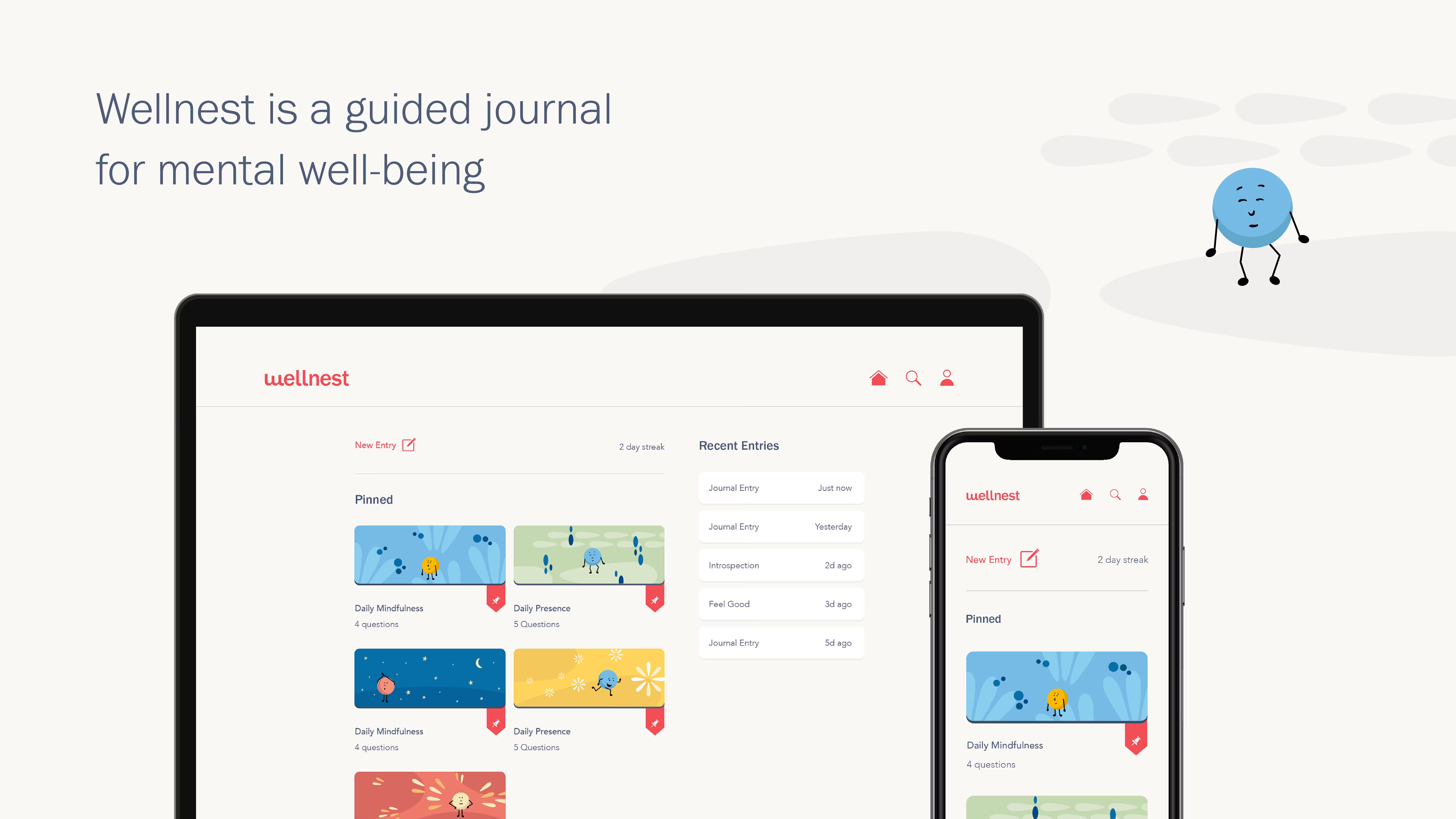
Wellnest Journal
Pros: Great features, User friendly interface
Cons: Not available on Android
Platforms: iOS
Features: Guided courses, Mood check-in, Voice journaling, Guided questions
Cost: Free, $4.99/month, $23.99/year for Plus.
Wellnest Journal is especially designed for students who want to prioritize their mental health and develop healthy habits. As well as providing a journal to record inner thoughts, it has a lot of unique features including the ability to use voice journaling to quickly organize your thoughts and record speech-to-text.
The mood check-in uses questions to better understand your emotions and you can track your moods in your weekly insights if you opt for Wellnest Plus.
Read Wellnest Journal reviews from our community
9. Reflectly
Best AI gratitude app
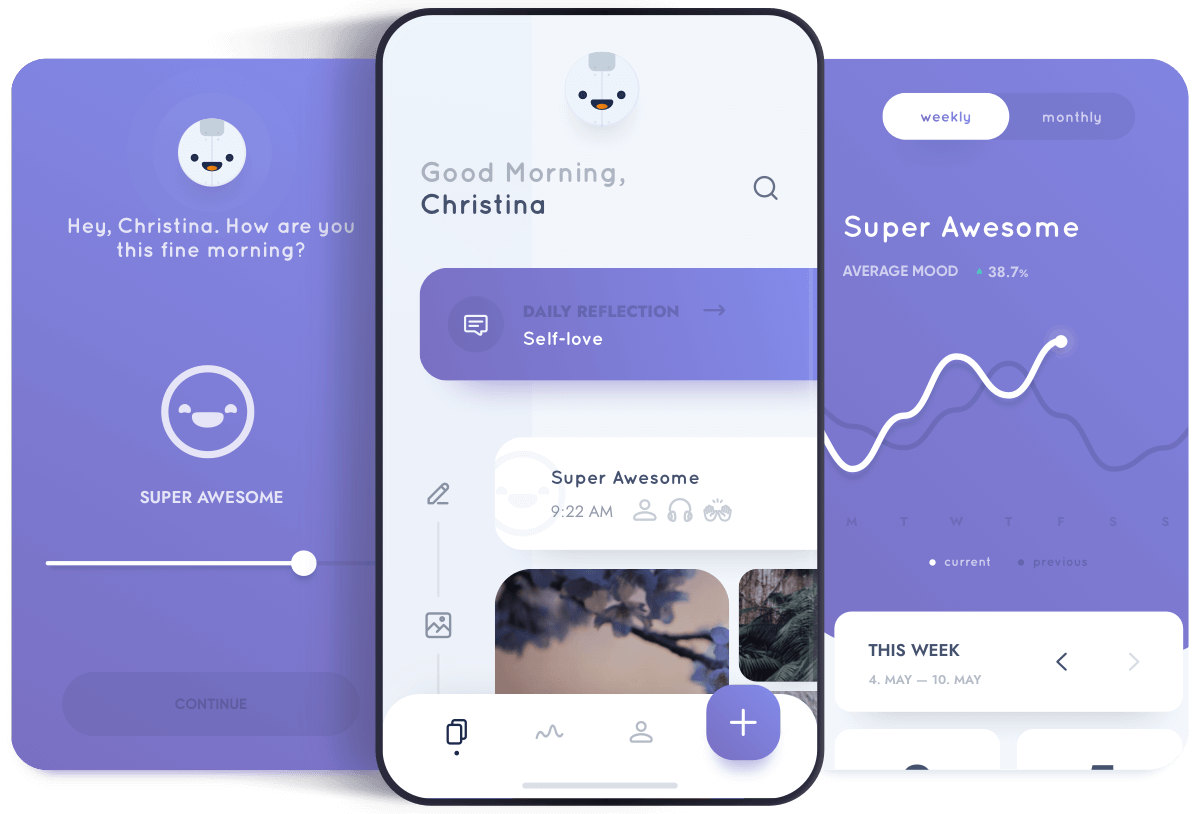
Reflectly
Pros: Cute and customizable interface, Great personalization features
Cons: Requires log-in to use, Simplistic features
Platforms: iOS and Android
Features: Mood check-in, Voice notes, Quotes and affirmations
Cost: Free, From $4.99 - $59.99 for Premium features
If you love the idea of using AI as your own personal mental health companion, then Reflectly is the perfect app to download. It features an immediately inviting interface complete with adorable Reflectly mascot that can be customized from the outset to suit your preferences, including setting reminders and changing colors.
What makes Reflectly feel special is the level of personalization: it gives you personalized morning motivation and affirmations the more you use it and it uses your name from the outset, which is a nice touch. Some of the features can feel overly simplistic such as the options for activities and emotions, but its user-friendly interface is worth exploring, particularly if you enjoy using AI chatbots.
Read Reflectly reviews from our community
10. 365 Gratitude Journal
Best gratitude app for keeping on track
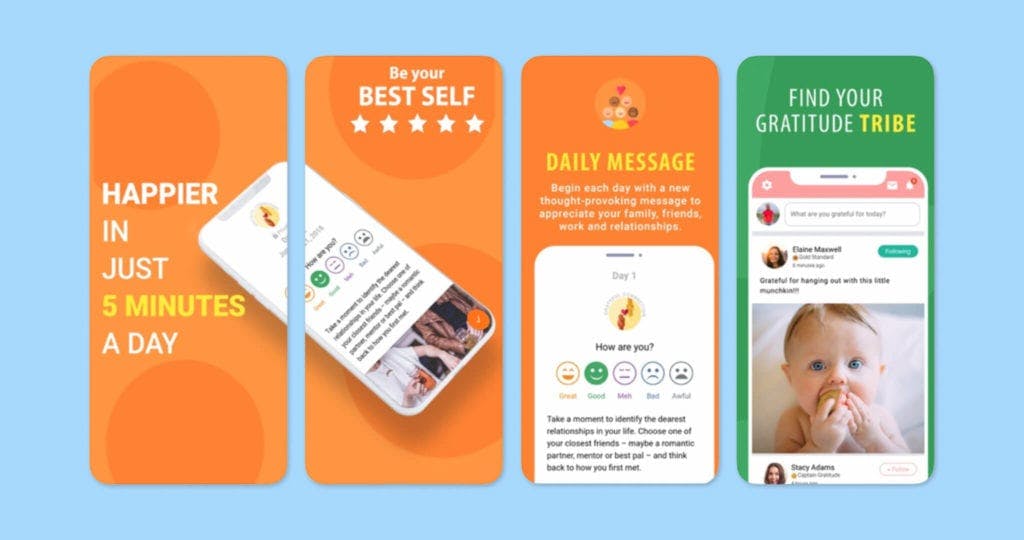
365 Gratitude Journal
Pros: Community features, Gamification style an interesting approach
Cons: Prompts can be repetitive
Platforms: iOS and Android
Features: Daily prompts, Gratitude jar, Gratitude game, Mood-tracking, Meditations
Cost: 7-day-free trial, $2.99/month yearly or $9.99 per month.
365 Gratitude Journal has a unique format in that it encourages its users to focus on the good in life by gamification. You can win rewards and prizes by unlocking medallions when you complete daily challenges and share your joy with the global community.
The app also features guided journals, a mood-tracker, courses, games and prompts, though some prompts can feel a bit repetitive.
11. Happyfeed
Best for daily gratitudes
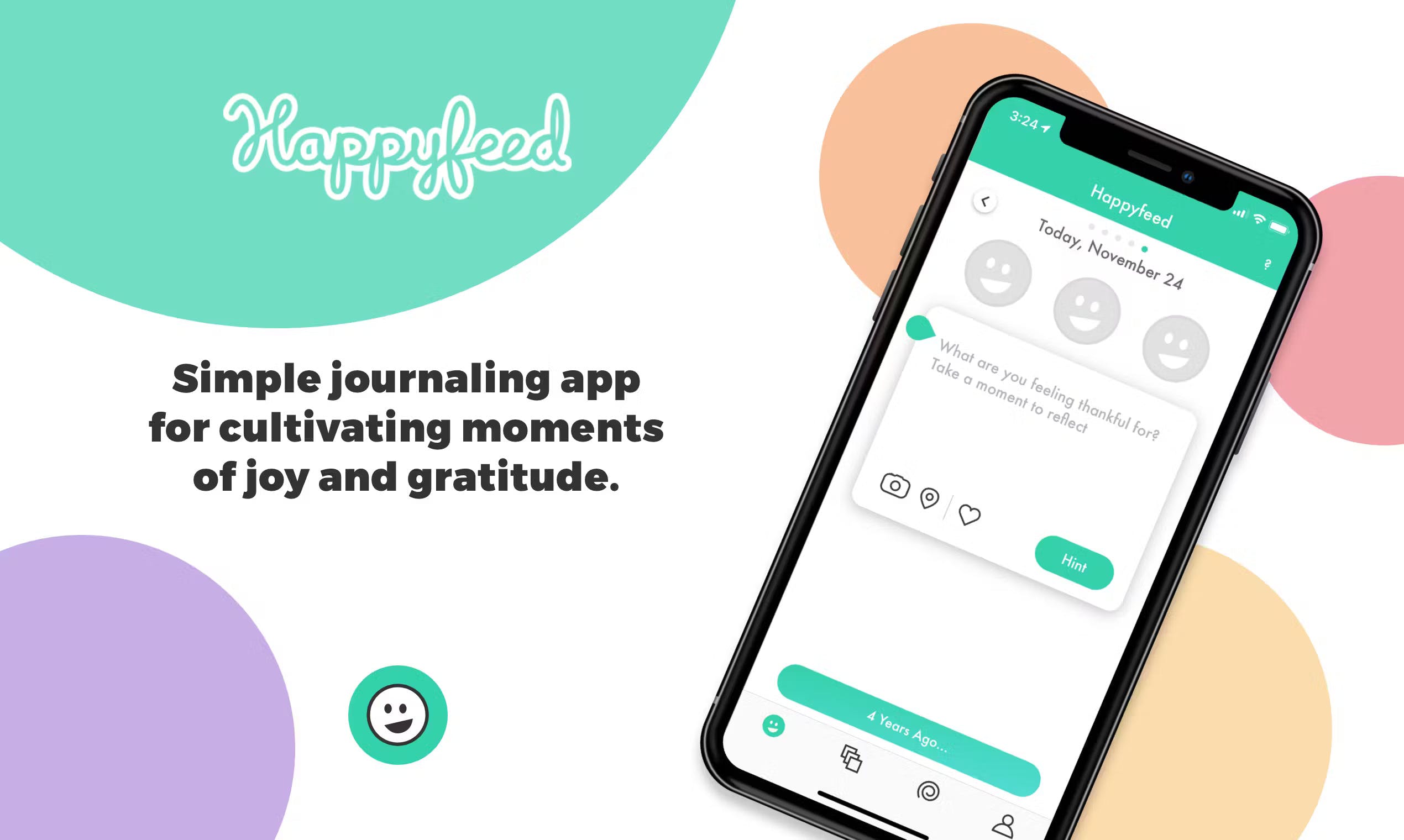
Happyfeed
Pros: Simple purpose, User friendly interface
Cons: Requires sign-up from the outset
Platforms: iOS and Android
Features: Moments per day, Your Memories, Happy Calendar
Cost: 7-day free trial, $3.99/month or $39.99/year
Happyfeed is a journaling app for iOS and Android that records 3 gratitudes or positive moments each day to boost your happiness by focusing more on the bright side of things.
It’s a simple concept that’s well executed. You enter what you’re feeling thankful for by taking a moment each day to reflect and enter your thoughts into the journaling screen. The Your Memories feature makes it visually easy to look back in time or you can explore your past moments using the Happy Calendar view too.
Read Happyfeed reviews from our community
12. Whole
Best for community features
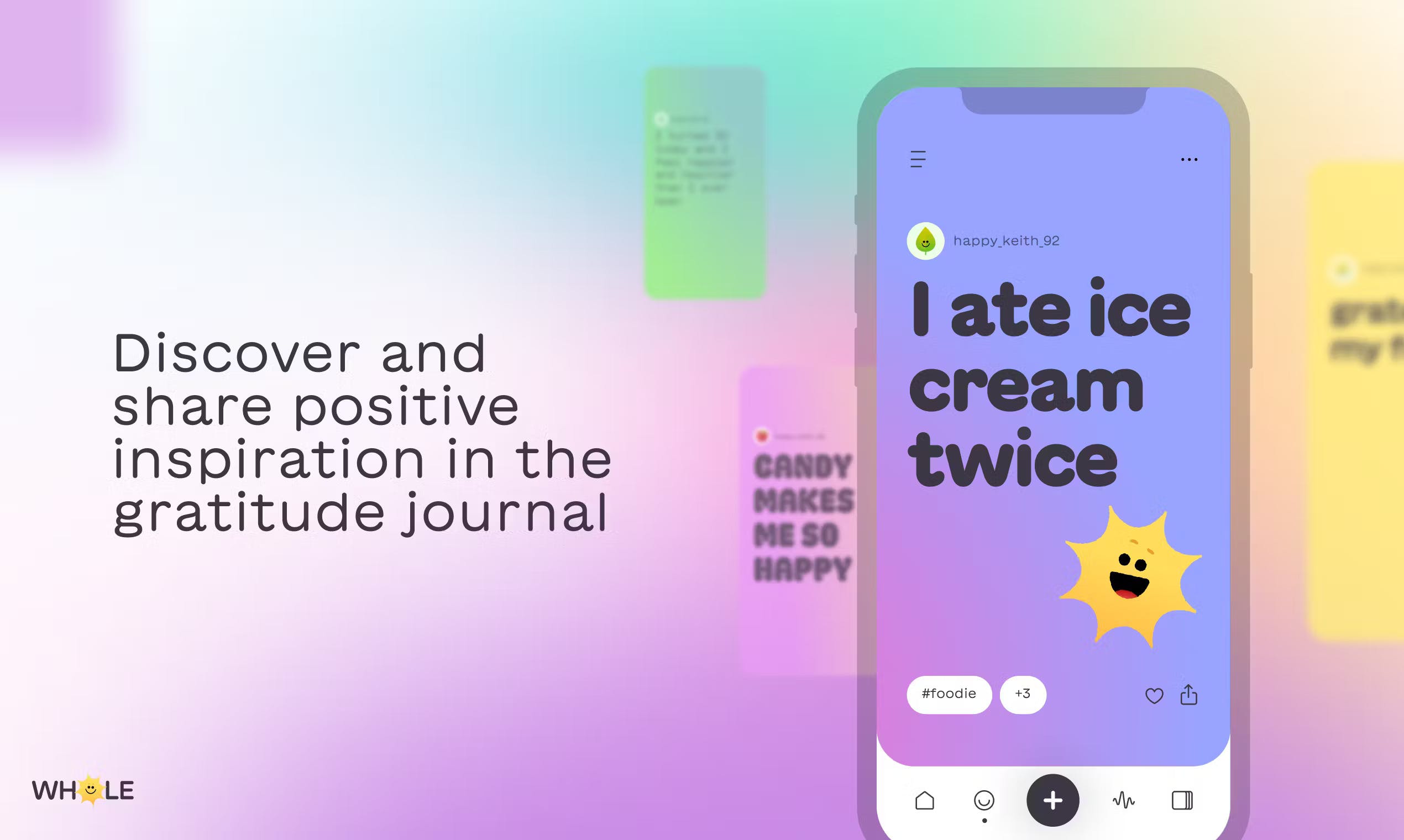
Whole
Pros: Community, Mood tracking, Colorful
Cons: Many features require Premium subscription
Platforms: iOS, Android
Features: Happiness goals, Gratitude feed, Routines
Cost: Free options or $19.99 per year
Whole is a gratitude app born from a popular Instagram account called The Happiness Broadcast. The concept is simple, looking on the bright side of the news can contribute to a happier, more balanced life. What started as a simple good news content channel has since grown into a full-blown app to help people track their moods, manage stress, set happiness goals, and tap into a grateful community sharing positive messages throughout the day.
When first launching the app, users are prompted to choose a happiness journey based on their goals. There are four happiness journeys to choose from and you can switch at any time. These include; be happier, manage anxiety better, establish self-care routines, and get more zzz’s. After the initial setup, each time you open the app users can answer the gratitude question of the day, log their moods with emojis, or tap into the Happy Broadcast to read good news from all over the world.
Read Whole reviews from our community
13. Grapefruit
Best gratitude app for privacy
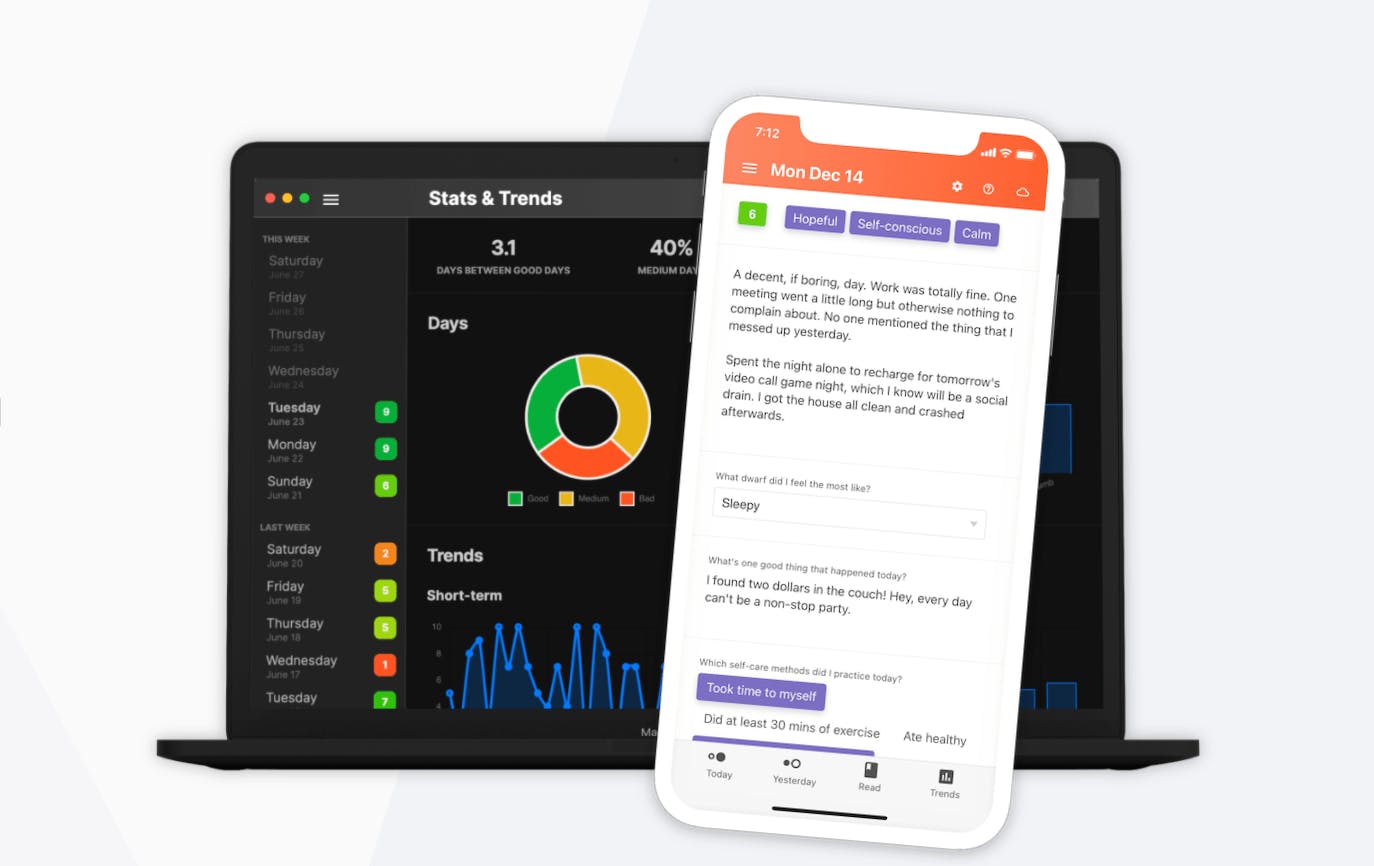
Grapefruit
Pros: Fully customizable, Ultra private, No email required
Cons: High learning curve
Platforms: Mac and iOS
Features: Journaling, Mood tracking, Pre-set or self-guided user journeys, No ads
Cost: Free
Grapefruit is an ultra-private mood-tracking and journaling app for Apple users. The app was initially built when the developer was suffering from a mental health crisis a decade ago and needed a tool to get back on track and feel happier. Grapefruit is fully customizable so if you want to build out your own user journey, this app is for you.
With this app you can decide what things you want to track and when to track them. If this sounds overwhelming, there are also pre-set user journeys to choose from! The app is completely free and there is no forced login, no ads, and no tracking. You don’t even need an email address to get started! The data can be stored locally on your phone for complete privacy.
If you do sign in with your email address, deleting your data is easy as sending an email to Grapefruit support. Users can also decide when they want their data to be automatically deleted on a timed interval. Overall the app is minimalist, privacy-first, and ready to customize to your liking.
Read Grapefruit reviews from our community
14. InnerSense
Best for managing anxiety
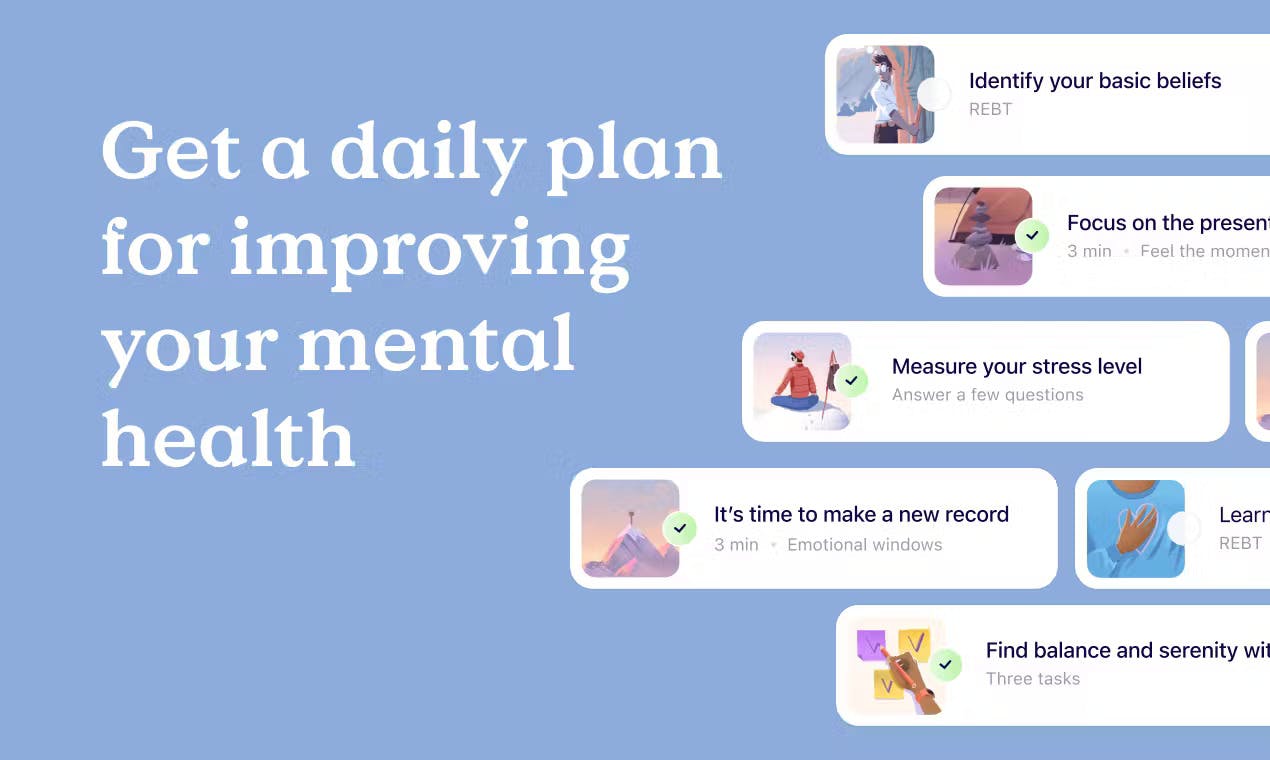
InnerSense
Pros: Clean design, Curated by psychologists, Options to delete your data
Cons: Cost may be a barrier for some
Platforms: iOS
Features: Measurable insights, Daily action plans, Individually tailored
Cost: Free, $6.99 per month, or $49.99 per year
InnerSense is a mental health app focused on specific mental health challenges that affect millions of people every day. The core focus of the app is anxiety, burnout, and low self-esteem, and there are guided programs to help you through each specific issue.
The app is built by psychologists and interestingly, users are asked to report physical sensations they’ve noticed to look at self-reported moods more holistically. The app combines more than 10 science-backed methods for tracking and improving your mental health. These actions include mood tracking, gratitude journaling, reflecting, mindfulness, and more.
The app is designed to be used for just 10 minutes per day, giving users a low barrier to entry to start making positive changes in their mental health. Each time you open the app, you’ll see a plan for the day with specific actions to improve your mental health.
Read InnerSense reviews from our community
15. The Five Minute Journal
Best for short journaling
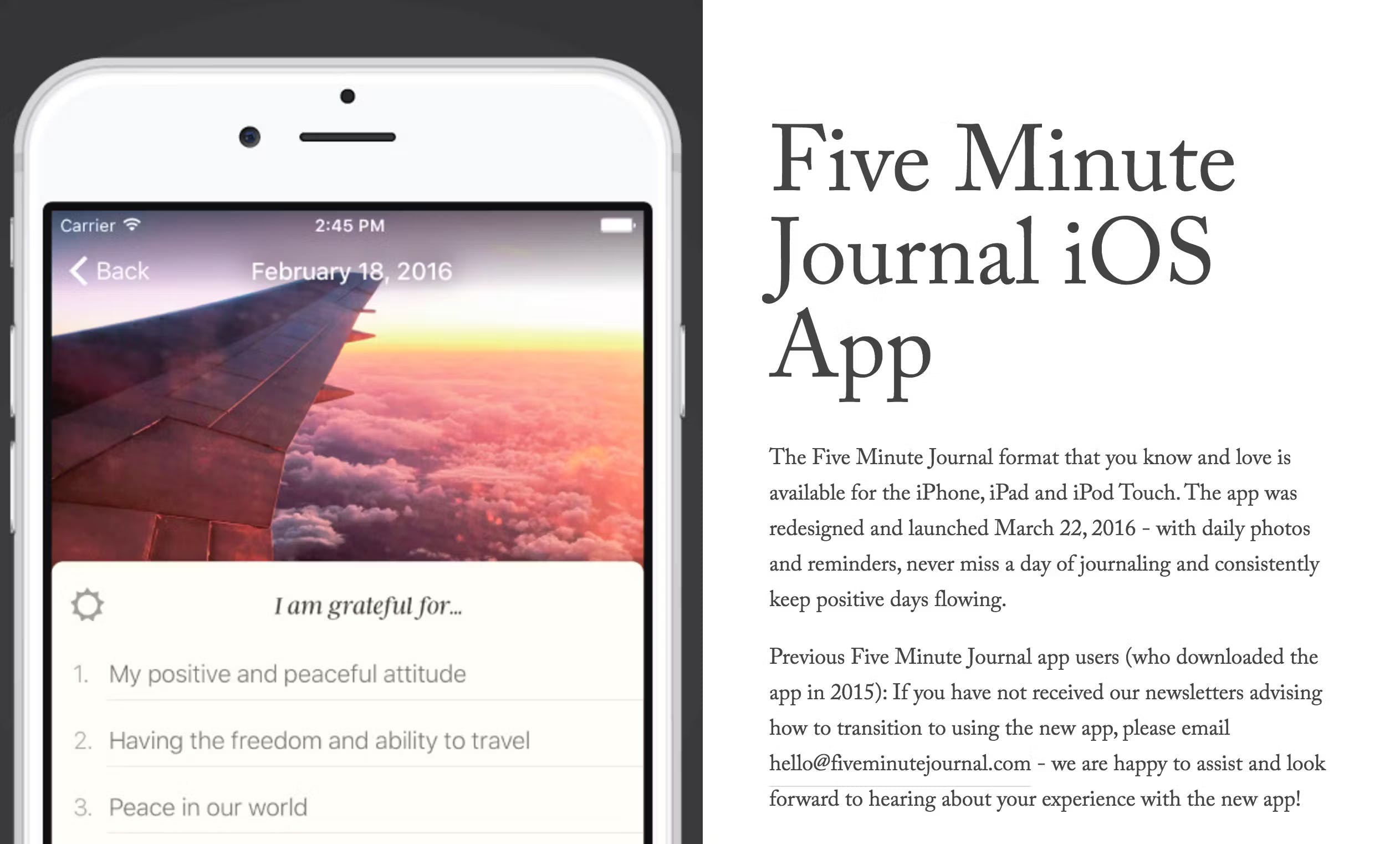
Five Minute Journal
Pros: Minimalist design, Easy to use
Cons: None
Platforms: Mac, iOS, Apple Watch
Features: Photo journal, Gratitude prompts, iPhone Widgets
Cost: Free, or paid plans from $4.99 per month to $99.99 for lifetime access
Journaling can feel like a huge ask for a lot of people, but what if you lowered the bar and set a time limit for yourself? Enter, The Five Minute Journal! This short and sweet journaling app can help you set small, attainable goals for your journaling and meet them in just 5 minutes per day.
Users can log their moods each day, upload photos to their gratitude photo album, add widgets and complications to their iPhones and Apple Watches respectively, and follow mindfulness guides in the app.
The free version of the app works very well and there are a variety of in-app purchases and price points to upgrade and unlock more features. The Five Minute Journal can also be purchased as a book to write in but what’s great about the app is you can carry it with you anywhere. It would be pretty nice to replace bathroom doom-scrolling with a gratitude journaling practice. Try it out!
Read The Five Minute Journal reviews from our community
What makes a great gratitude app?
Ease of use - Any gratitude app should be easy to use or offer guided features to help you through the process.
Data privacy - Journaling our thoughts should be private so the use of data should reflect that.
Design and UI - The interface should be user-friendly and easy to use, and be designed in a way that evokes positive emotions.
Features - Does the app utilize unique features and how easy are they to access and use to achieve your goal?
How we tested the gratitude apps
As Product Hunt is a hub for health and fitness apps, I started my search by compiling and downloading highly rated gratitude apps from within and outside the community to get a full list of products that could make the grade. I then downloaded and tested each considering data privacy, design, features and how easy it was to achieve my goals.
Comments (19)
Sonu@sonu_patna
Gratitude Forest is the best App
Share
I enjoyed the conversational tone of the article. It feels like the author is speaking directly to the reader, creating a more personal connection connections
If you have trouble remembering your blessings, Lego 2k drive whether big or small, we will recommend different gratitude apps to help you.

Momentory
Nice list of apps for wellbeing. Great Telemedicine apps also to be listed
More stories

Sanjana Friedman · Opinions · 9 min read
The Case for Supabase

Vaibhav Gupta · Opinions · 10 min read
3.5 Years, 12 Hard Pivots, Still Not Dead
Kyle Corbitt · How To · 5 min read
A Founder’s Guide to AI Fine-Tuning

Chris Bakke · How To · 6 min read
A Better Way to Get Your First 10 B2B Customers


